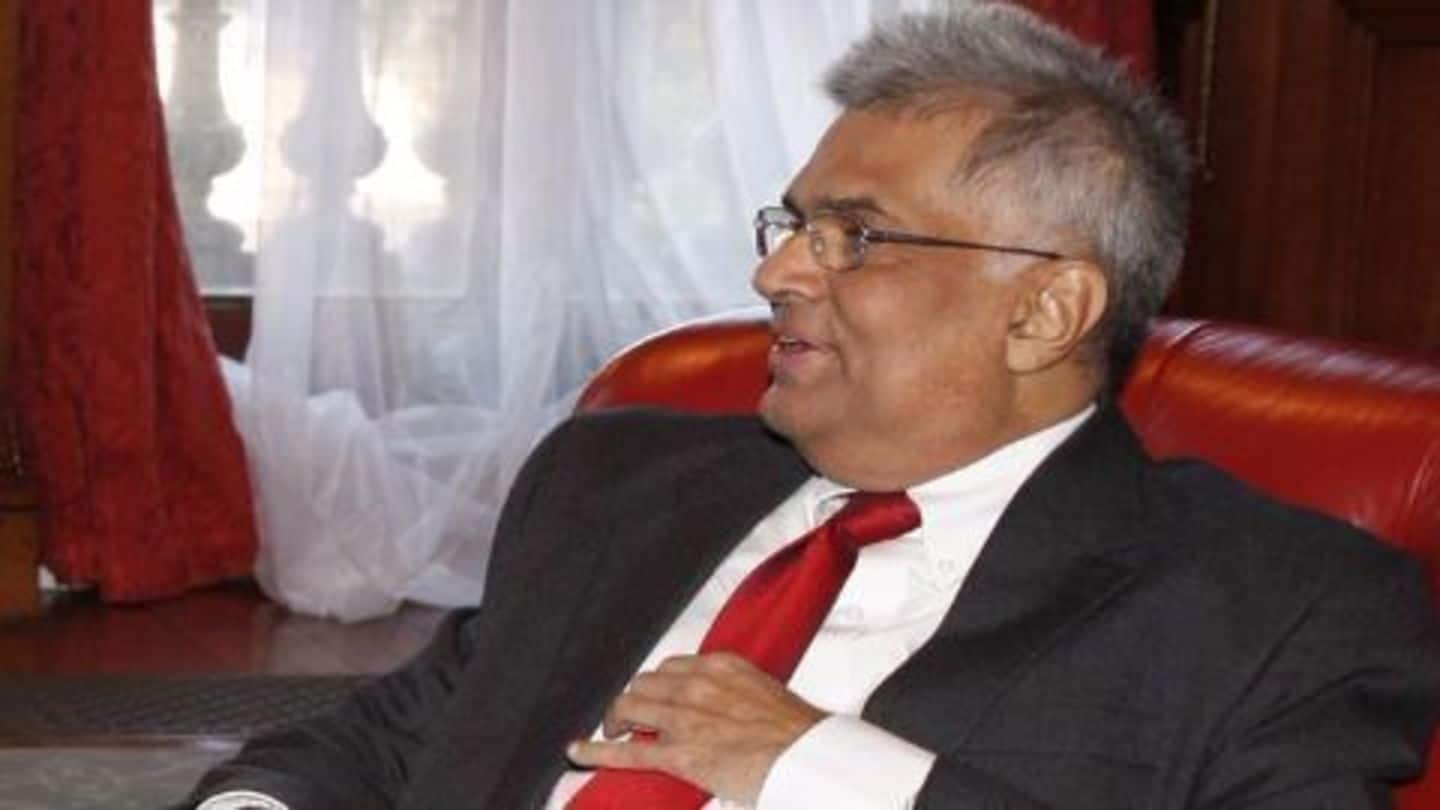
Wickremasinghe emerges victorious in Sri Lankan elections
What's the story
Sri Lanka's ruling United National Party(UNP) has won the parliamentary elections, crashing former president Mahindra Rajapaksa's hopes of becoming Prime-Minister. PM Wickremasinghe's UNP secured 106 seats out of 225 while Rajapaksa's UPFA won 95. Wickremasinghe has to negotiate with political allies as UNP is just 7 seats short of clear-majority. The final results paved a way for the formation of a stable government.
Personal
Mahinda Rajapaksa's presidential term
Rajapaksa was elected the President of Sri Lanka on 19 November 2005. He was re-elected as President on 27 January 2010.
20 Apr 2010
The results of the previous Parliamentary Elections
After the 25-year long civil war ended, the 2010 Parliamentary elections saw a clear victory for then President, Rajapaksa's ruling coalition, United People's Freedom Alliance (UPFA). UPFA won 144 seats in the 255-member parliament, falling short of six seats to acquire two-thirds majority, which would have enabled it to change the nation's constitution. UNP had secured 60 seats and became the major opposition party.
Sep 2010
Rajapaksa endowed with bulky power!
On 8 September 2010, 161 MPs out of 255 supported the eighteenth amendment, hugely increasing the powers of the President and removing the two term limit on presidency. The amendment also allowed Rajapaksa to appoint all judges, commissioners for elections, human rights etc., undisturbed by any legal veto. It was reported that Rajapaksa allegedly used unfair means to secure the support of the MP's.
Nov 2014
Rajapaksa declares presidential elections
On 11 November 2014, the SC allowed Rajapaksa to run for re-elections, dissolving opposition claims that the amendment could not be put to effect. Rajapaksa called for presidential elections to be held in January 2014, two years ahead of schedule seeking to serve his third term as President. Much to everyone's surprise, Mathripala Sirisena, Rajapaksa governments' Minister of Health stood as opposition against him.
Jan 2015
Sirisena becomes President
Mathripala Sirisena won the presidential elections by 51.3% of the total votes. Political analysts attribute the defeat of Rajapaksa to his growing nature of becoming authoritarian and corrupt. Sirisena promised a 100-day reform programme, post which the parliament was supposed to be dissolved. Later, he expanded the Council-of-Ministers by inducting ministers from the Sri Lankan Freedom Party (SLFP), the major constituent of UPFA.
26 Jun 2015
Dissolution of Sri Lankan Parliament!
The parliament elected in 2010 which was supposed to last till 2016 was dissolved by President Sirisena in lieu of his inability to pass the 20th amendment embodying electoral reforms due to lack of majority in the Parliament. The decision came shortly after the opposition party UNP had formally asked him to do so. The new parliamentary elections were scheduled for 7 August 2015.
Jul 2015
Nomination squabble!
SLFP, a major constituent of UFPA were in full support of Sirisena since the Presidential Elections of 2015. Although, Sirisena had become the chaiman of UFPA, a large fraction remained loyal to Rajapaksa and demanded his candidature in the elections. This in turn angered Sirisena's supporters but Sirisena remained silent. As Rajapaksa's candidature was announced, Sirisena's many angry supporters allied themselves with UNP.
Personal
Wickremesinghe to serve 4th term as PM
Ranil Wickremesinghe has previously served his first term as the Prime Minister of Sri Lanka from 7 May 1993 to 19 August 1994 and three terms consecutively from 9 December 2001 to 6 April 2004.